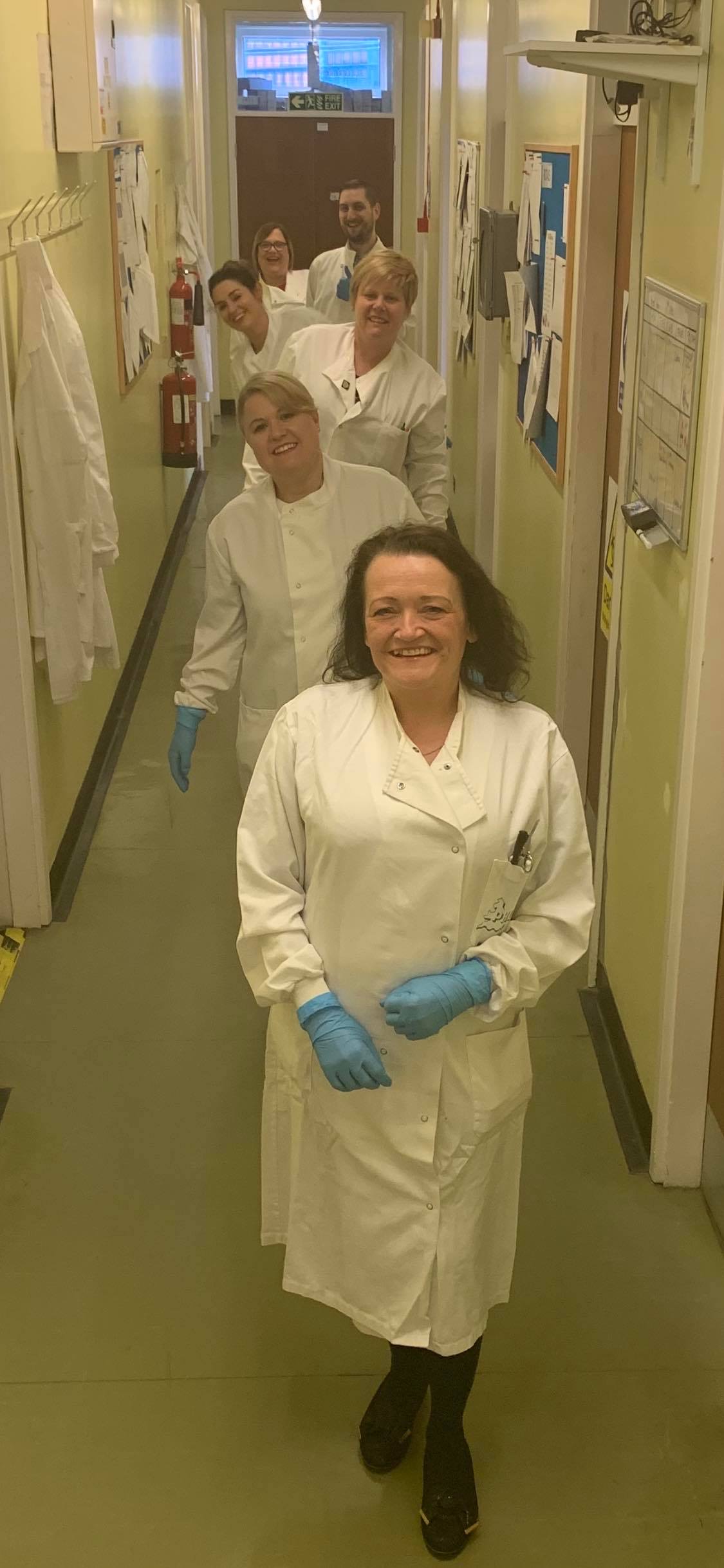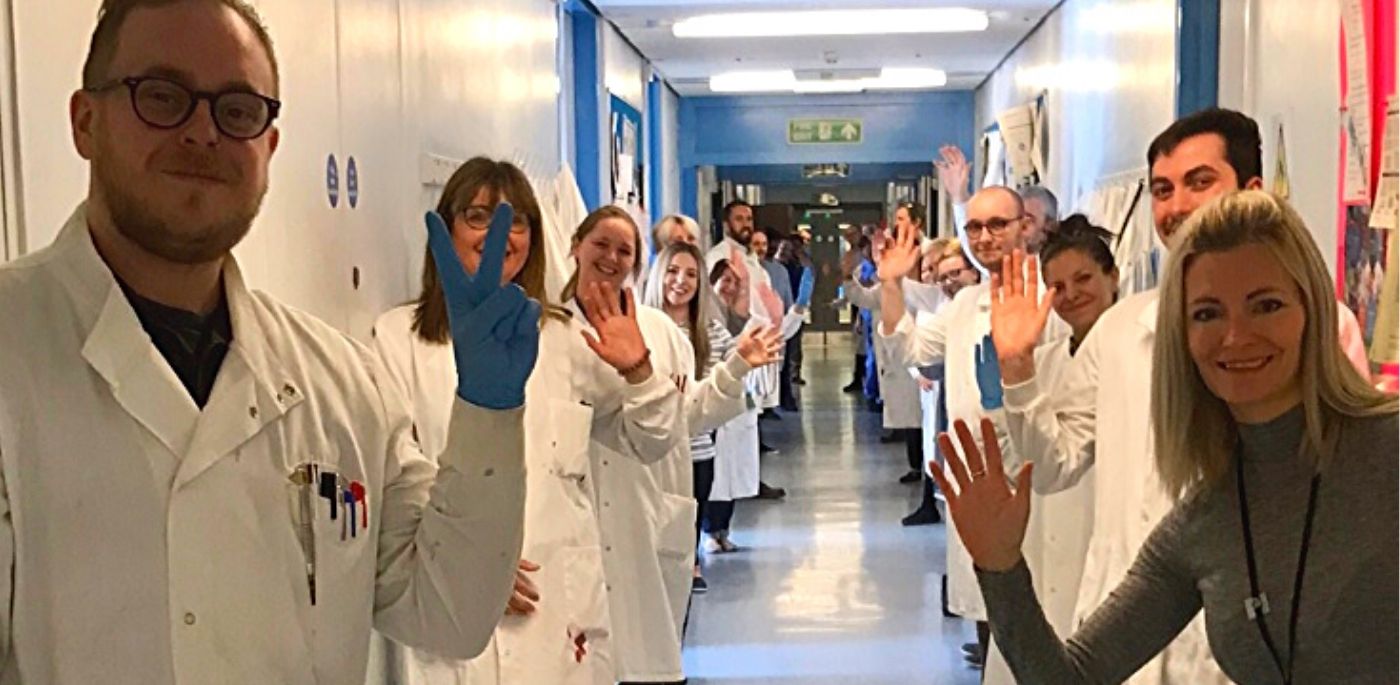The first laboratory samples in the country to test positive for COVID-19 went through their hands, but the specialist team of biomedical scientists at Hull University Teaching Hospitals NHS Trust say it’s all in a day’s work.
Hull made the national headlines back in January when Castle Hill Hospital received the first two patients in the UK who went on to test positive for coronavirus.

Members of the Virology Team
Ordinarily, scientists and support workers in the trust’s virology (left) and microbiology (above) services spend their days testing hospital and GP surgery samples for anything from simple urinary infections through to meningitis.
But they’re no strangers to testing for respiratory diseases either, so as the potentially COVID-19 positive samples passed through the laboratories, it was just second nature for this team of scientists – for whom PPE is everyday attire – to perform their high risk procedures, safeguarding themselves and those around them.
Eleven weeks later, with coronavirus continuing to sweep the country, this 60-strong team of unsung heroes is now making direct contributions to prompt patient care and to ensuring critical services across the local health community can continue.
Alison Eyre, Acting Head of Pathology Services for the trust explains:
“It’s probably fair to say we were apprehensive but also a bit excited at the time those first swabs were processed through our labs. The call came in in the early hours of the morning, and while the actual results were formally confirmed by a laboratory outside Hull, the coronavirus outbreak was something we’d all seen escalating in previous weeks so we were fully aware of what it could be and how to respond accordingly.”
Within just a few weeks of the first cases passing through the labs, the team was able to start their own in-house testing, meaning the time it now takes to deliver a result has reduced to a matter of hours rather than days.
“Staff working in virology and microbiology have really pulled together to meet the expectations placed upon them,” Alison continues.
“Many of our scientists, associate practitioners and support workers have willingly extended their hours or changed their place of work, and some have changed the immediate teams they work within so that we can deliver a more extensive, seven-day service.

Biomedical scientist, Melanie Dawes, at work in the lab
“With national guidance changing regularly and new scientific information coming through all the time, the team has done so well to not only keep up with the latest directives, but we’ve managed to continue extending what we are able to do.
“Being able to test for COVID-19 in-house means patients can receive their results and begin treatment more quickly than before; this is also really important for our nurses, doctors and other frontline staff because it then enables them to make informed choices about how and where they care for those patients and how best to protect the people around them.
“As well as testing patients believed to have coronavirus, we also began testing symptomatic staff and those of neighbouring NHS organisations such as Humber NHS Foundation Trust and Yorkshire Ambulance Service just under two weeks ago. We’re using as much of our testing capacity as we have available for this purpose, meaning virology and microbiology staff are playing a direct role in keeping critical services running by determining which members of staff are able to return to work safely and who needs to stay away.”

Katie Kitchman was the biomedical scientist on call who processed the first COVID-19 positive samples
As part of a regional network of pathology services, Hull University Teaching Hospitals NHS Trust is even helping others outside the immediate area. Scientists have been using their expertise and any spare capacity to support other hospitals across Yorkshire, such as Doncaster and Sheffield with staff and patient testing, reflecting the ethos that we are all truly ‘in it together’.
“They’ve been at the forefront of the local COVID-19 response from day one,” Alison continues.
“Because the testing processes are largely done behind the scenes, our scientists can often fail to get the recognition they deserve, but there’s no better time than right now to shine a light on just how big a role this amazing team is playing in caring for both our patients and our staff, and will continue to play in the days and weeks to come.
“Everyone is sharing the load, and they’re doing it with a smile on their faces; I’m incredibly proud of all the team.”

